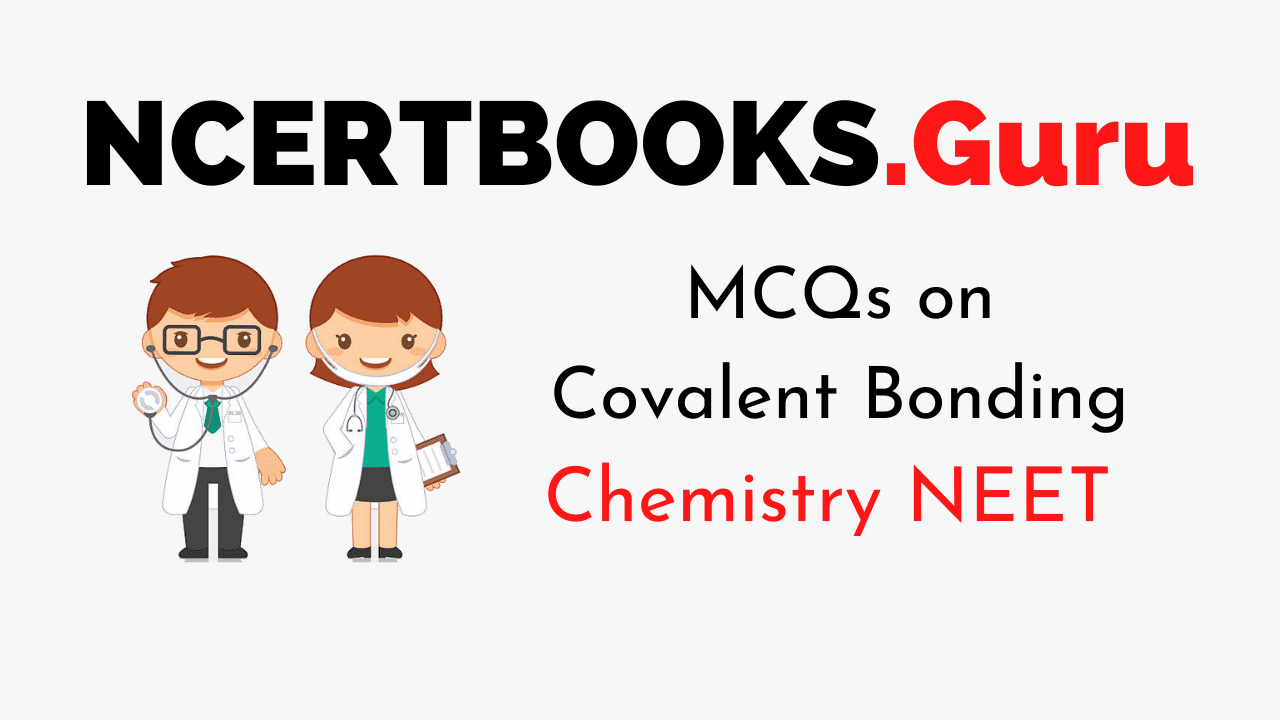NEET Chemistry is the scoring paper in the medical entrance examination. Here, you will discover the NEET Chemistry MCQ Questions for all Concepts as per the latest syllabus. Practice more on a regular basis with these NEET Chemistry objective questions on air pollution and improve your subject knowledge & problem-solving skills along with time management. NEET Chemistry Covalent Bonding Multiple Choice Questions make you feel confident in answering the question in the exam & increases your scores to high.
MCQs on Covalent Bonding
1. The octet rule is not valid for the molecule
(a) CO2
(b) H2O
(c) O2
(d) CO
Answer
Answer: (d)
2. The nature of bonding in CCl4 and CaH2 is
(a) electrovalent in both CCl4 and CaH2
(b) covalent in CCl4 and electrovalent in CaH2
(c) electrovalent in CCl4 and covalent in CaH2
(d) covalent in both CCl4 and CaH2
Answer
Answer: (b)
3. CCl4 is insoluble in water because
(a) CCl4 is nonpolar and water is polar
(b) water is nonpolar and CCl4 is polar
(c) water and CCl4 are both polar
(d) none
Answer
Answer: (a)
4. Which is not an exception to octet rule?
(a) BF3
(b) SnCl4
(c) BeI2
(d) ClO2
Answer
Answer: (b)
5. The compound with the lowest melting point is
(a) AlF3
(b) AlCl3
(c) AlBr3
(d) AlI3
Answer
Answer: (d)
6. A solid substance is soft, has a low melting point and is a poor conductor of electricity. The substance is most likely
(a) an ionic solid
(b) network solid
(c) a metallic solid
(d) a molecular solid
Answer
Answer: (d)
7. By applying a Silver Nitrate solution to pure carbon tetrachloride
(a) a white precipitate soluble in ammonia is obtained
(b) a curdy precipitate insoluble in ammonia is obtained
(c) a pale yellow precipitate is obtained
(d) no precipitate is obtained
Answer
Answer: (d)
8. The rate of reaction of organic compounds is slow due to
(a) ionic bonding
(b) amphoteric nature
(c) covalent bonding
(d) coordinate covalent bonding
Answer
Answer: (c)
9. The self linking ability of carbon is called
(a) catenation
(b) sublimation
(c) hydrogenation
(d) carbonation
Answer
Answer: (a)
10. Almost 95% of compounds are of carbon because they can form
(a) single bonds
(b) double bonds
(c) triple bonds
(d) multiple bonds
Answer
Answer: (d)
